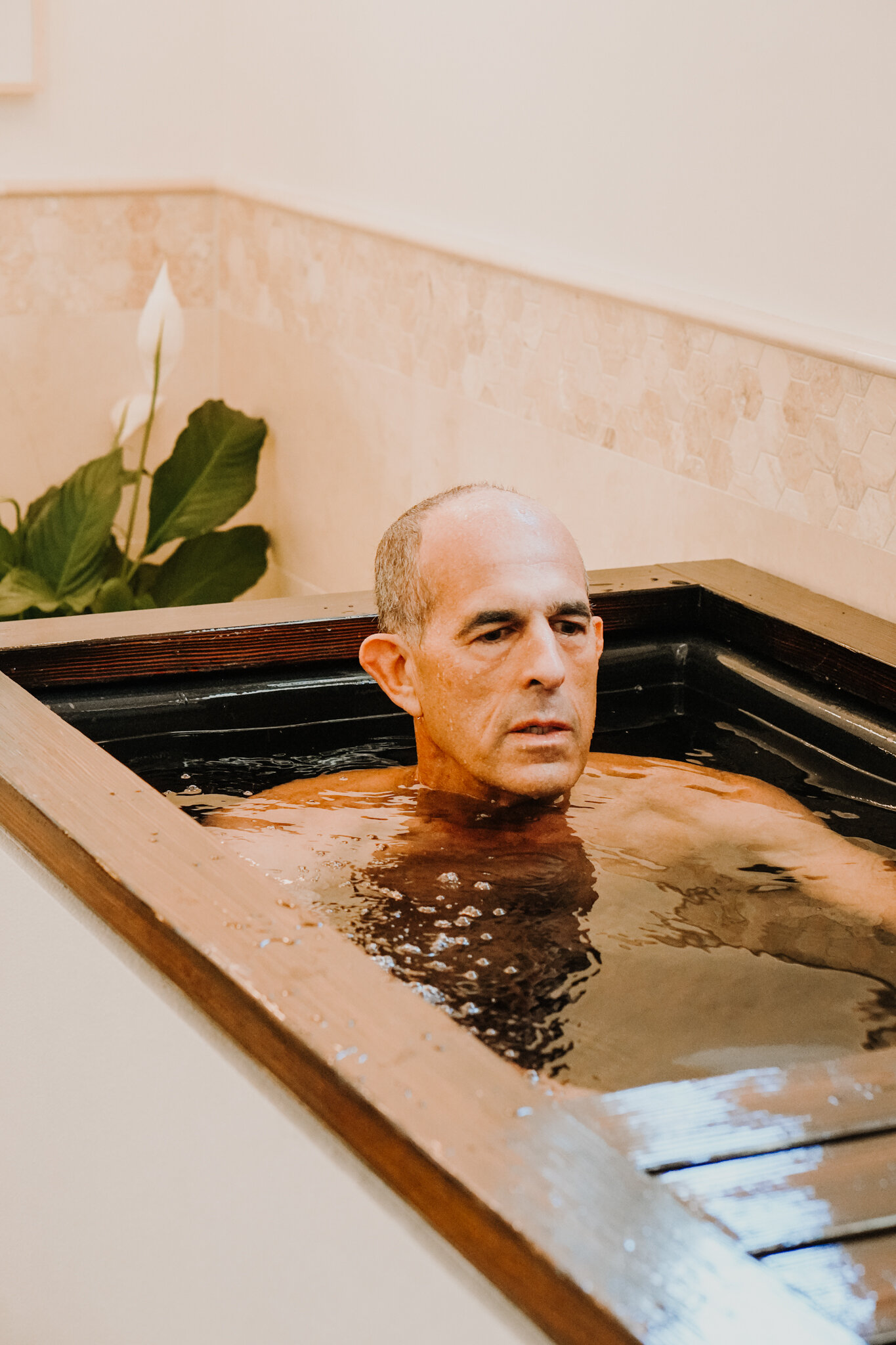Listen on: Apple Podcasts | Spotify | Amazon Music | Podcast Index | Overcast | YouTube
What you’ll find in this episode:
0:04 Benefits of Sauna and Cold Exposure
1:45 Take Home Messages
3:08 History of exposure to heat and cold
7:17 Benefits of sauna and the underlying studies
18:02 Benefits of cold exposure and underlying studies
25:53 My routine
27:50 How to test the benefits in yourself (N of 1 Study)
The 5th Pillar to Live Long and Well is exposure to heat and cold (i.e., sauna, cold plunge). There is strong evidence supporting the idea that exposure to heat and cold can positively affect both longevity and quality of life. This isn’t just wishful thinking; it’s backed by credible scientific studies.
Practical Takeaways
The great news is that incorporating these practices into your routine is relatively simple and doesn’t require expensive equipment.
Sauna Tips
For heat exposure, spending 15 to 20 minutes in a sauna a few times a week can be very beneficial. While saunas may not be as easily accessible to everyone, many gyms and wellness centers offer them.
Cold Exposure Tips
Cold exposure is even more accessible. You can achieve the benefits with a cold shower or by adding a few bags of ice to your bathtub. Just three to five minutes in a cold environment a few times a week can make a significant difference.
My Routine
For those interested in practical application, I typically start my day with a cold plunge and end it with a sauna session. This routine helps me feel invigorated in the morning and relaxed before bed.
Historical Context
Heat and cold exposure have a long history. Saunas originated in Finland about 2,000 years ago and were used for relaxation and pleasure. The Finns even used mobile saunas during World War II. Similarly, cold exposure has ancient roots, with historical records suggesting its use as far back as 3500 BC.
Sauna Benefits
- Reduction in High Blood Pressure: A Finnish study with a 25-year follow-up found that regular sauna use significantly lowered the risk of developing high blood pressure.
- Lower Risk of Heart Disease and Cardiovascular Death: Another Finnish study observed that regular sauna users had a reduced risk of sudden cardiac death and heart disease.
- Reduced Cognitive Decline: Regular sauna use was associated with a lower risk of cognitive decline and dementia.
- Improved Mood and Depression: Studies have shown that sauna sessions can improve mood and alleviate symptoms of depression.
Cold Exposure Benefits
- Soft Tissue Injury Treatment: Cold exposure has a long history of being used to treat injuries like sprains and strains.
- Improved Exercise Recovery: Studies, including meta-analyses, have found that cold exposure aids in faster recovery after intense exercise.
- Enhanced Mood: Cold exposure can significantly improve mood, as shown by various
- Metabolism Boost: Cold exposure activates brown fat, which helps burn calories and improve metabolism.
Conducting Your Own Experiment
- Baseline Measurement: Assess what you want to improve (e.g., sleep, mood, blood pressure) and measure it for a week.
- Intervention: Incorporate either a cold shower or sauna for 2-4 weeks
- Reassess: Measure the same parameters to see if there’s any improvement
Conclusion
Exposure to heat and cold can help us live long and well. I encourage you to try it out and see the benefits for yourself. The time commitment is modest, and the potential benefits are significant.

Scientific research underscores the intricate interplay between lifestyle factors and human health. Exercise, a cornerstone of well-being, enhances cardiovascular health, boosts mood, and promotes cognitive function. Coupled with proper nutrition, it fosters optimal physical performance and supports immune function. Beyond the individual, social ties exert profound effects on health, buffering against stress and enhancing longevity. Meanwhile, exposure to hot and cold environments elicits physiological adaptations, bolstering resilience and metabolic efficiency. Adequate sleep, essential for cognitive consolidation and metabolic regulation, underscores the importance of restorative rest. Moreover, the mind-body harmony underscores the intricate relationship between mental and physical health, highlighting the profound impact of mindfulness and stress management on overall well-being. Integrating these factors into daily life cultivates a holistic approach to health promotion and disease prevention.